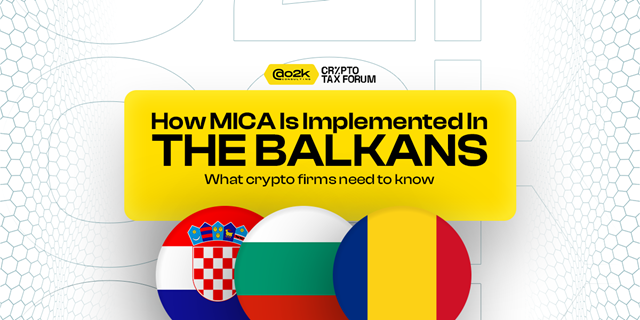This article was created in collaboration with 21 Analytics, a leading Travel Rule solution provider.
The Travel Rule is what a well-known anti-money laundering (AML) requirement in traditional finance is called. It requests financial providers to gather and exchange personal information on the people involved in a monetary transaction. It assists law enforcement agencies and financial intelligence units in tracing and following the money, so it is possible to investigate and prosecute criminals.
In 2019, the Financial Action Task Force (FATF), a financial watchdog that, among other responsibilities, releases recommendations for regulators globally, expanded the Travel Rule recommendation to virtual asset service providers (also known as VASPs). However, FATF recommendations only become an obligation for crypto companies once their country’s regulators adopt the FATF recommendation by turning it into law.

What information needs to be exchanged?
The information that needs to be exchanged is relatively simple and is in line of what is traditionally exchanged in fiat transfers. The originator of the coins needs to send the name, the account number (the wallet address) and the physical address of the user sending the coins. On top of that, the name and account number of the recipient of the coins needs to be sent.
Beware that some jurisdictions go above and beyond the FATF recommendation and require more or other information to be exchanged!
Is the Travel Rule for crypto live yet?
Since 2019, several jurisdictions have implemented regulations which demand VASPs to adhere to the Travel Rule. Countries like Switzerland and Singapore were early adopters, while Germany, Canada, Gibraltar, Liechtenstein and more followed. Last June, the European Union also reached an agreement on the regulation details, which apply directly without the need for transposal to local law by the EU member states.
What types of businesses need to comply with the Travel Rule?
Although regulation may differ around the world, the FATF initially required any business transacting virtual assets in the name of their clients to comply with the Travel Rule. Therefore, custodians, brokers, exchanges and banks are usually included.
How can a business comply with the Travel Rule?
Since the main purpose of the Travel Rule is that businesses involved in a crypto transaction inform each other and gather personal information on their customers, the Travel Rule is considered a two-VASP-game. Hence, VASPs need to know which VASP is on the other side of a transaction and have a way to safely send and receive the data - since it is very sensitive. This is quite straightforward in traditional finance, but definitely not an easy task in crypto. For these needs, Travel Rule protocols have been developed.
What is a Travel Rule protocol?
A Travel Rule protocol is a manner, a technology, or a standard way of exchanging Travel Rule required data between companies. There are several initiatives in the market; for example, TRP (short for Travel Rule Protocol) is popular in Europe, an open, royalty-free protocol developed by a joint industry effort, where 21 Analytics is a lead contributor.
A solution may support one or more ways of exchanging data which, in the latter case, would constitute a multiprotocol solution, like the 21 Travel Rule, enabling a VASP to connect to a wider network of counterparties.
What happens if a business doesn’t comply with the Travel Rule?
Depending on the status of Travel Rule regulation in the country where such business is located, there may be investigations and fines or companies can be required to stop operating, just like when a financial institution fails to comply with any anti-money-laundering or counter-financing-of-terrorism activities.
How to start complying with the Travel Rule?
We advise that the compliance teams at VASPs start researching the Travel Rule requirements for their countries and types of operations as early as possible, so they are able to evaluate the solutions available in the market. Then, one should consider the privacy, compliance, and operational risks associated with such implementation and define the crucial resources a Travel Rule solution must support to adhere to the VASP’s compliance program.
_____________________________
We hope that was informative. Expect our next blog in the coming days.
If you found this content useful, why not share it with your peers? We have made it easy for you! Just use the social media sharing buttons below.






.png)























.jpeg)


























.jpg)




































